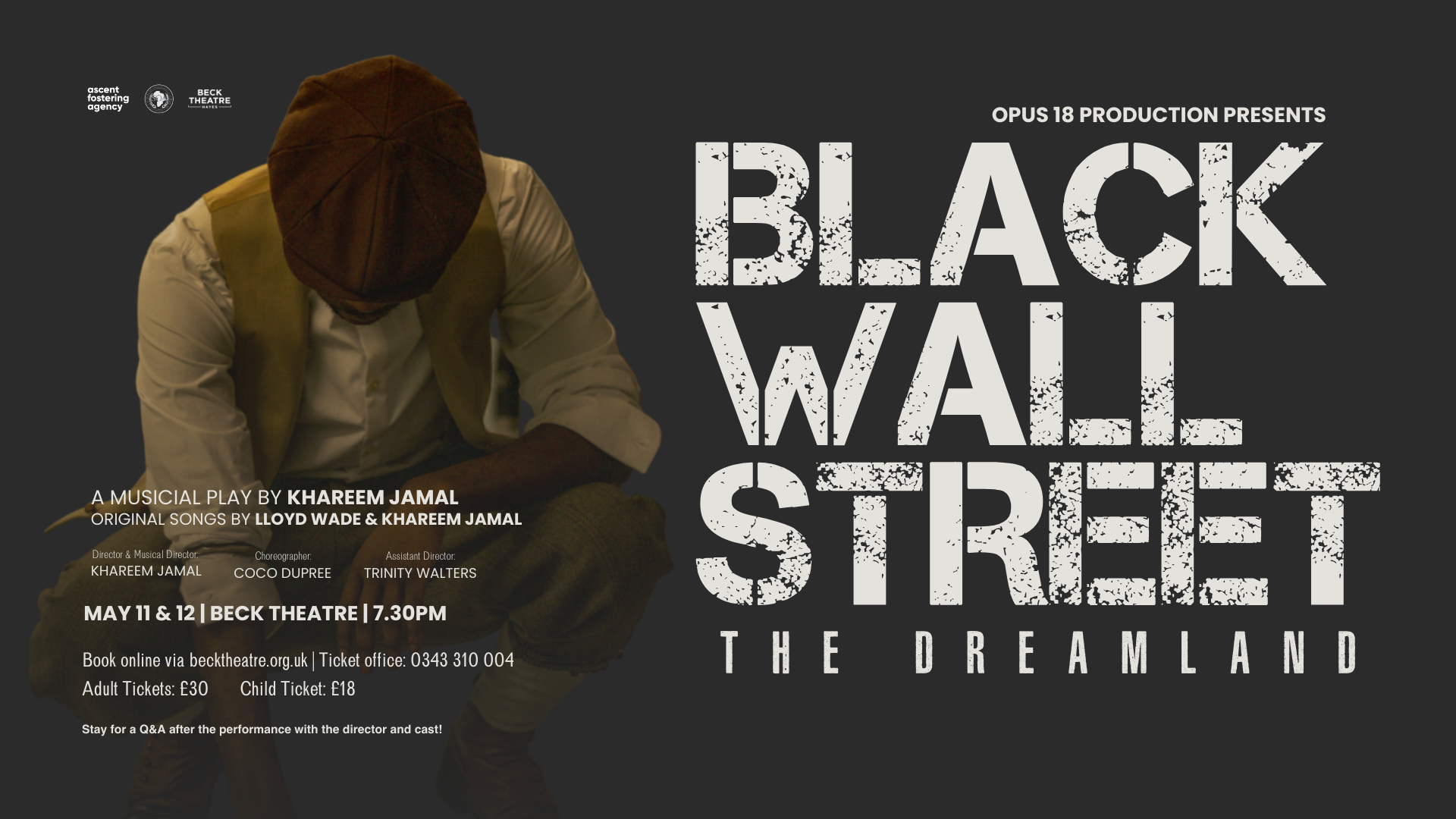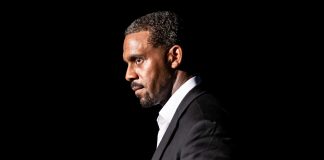
As the curtain opens, the rousing harmonies of the ensemble immediately fill the Beck Theatre, cleverly transporting us back over 100 years to Greenwood, a suburb of Tulsa, Oklahoma where the affluent Black community is thriving.
Just 58 years after the end of slavery, esteemed author, educator, and orator Booker T. Washington was so impressed with its prosperity he dubbed it the “Negro Wall Street of America,” a shining beacon of hope for Black Americans everywhere. Greenwood achieved previously unimaginable Black excellence where lawyers, surgeons and hoteliers resided.
It was no mean feat for the African-American community to become self-sufficient and thrive despite the growing resentment of the Ku Klux Klan in surrounding areas, but Greenwood defied all odds.
Diving straight into the heart of the story, we meet Dick Rowland, a bootblack (shoeshine boy) whose exchange with J.B Stradford, one of Greenwood’s founders fills the audience with hope and optimism.
Working in segregated Tulsa, Rowland took a break from work to head to the only public toilet for black people when he tripped and innocently bumped into a white girl called Sarah Page.
This unfortunate mishap became the tipping point for a heart-breaking chain of events that no one could have predicted. Dick Rowland was arrested as white Supremacists went on a rampage incensed that a young girl had been “assaulted” by a black man. Greenwood was torched, innocent families had their homes set alight and hundreds were brutally murdered. The Tulsa massacre destroyed Black Wall Street, burning it to the ground and wiping out years of African-American success stories in just two days.
In a captivating piece of edutainment by British historian, playwright and musician Khareem Jamal, the audience is given an insight into life before and after the 1921 Tulsa race massacre. There’s a poignant scene between the Black WW1 veterans who immediately head to the courthouse armed with rifles to defend Dick Rowland which gives us a glimpse of their pride in fighting for their country and hope that the perpetrators will see them as fellow Americans too.
Powerful testimonies of the survivors are featured in the finale. Life as they knew it would never be the same again. The prospect of starting over felt impossible for many residents, while others remained hopeful that what was achieved in Greenwood could be replicated elsewhere. The mass migration of the Black community from Greenwood is arguably what the supremacists hoped for but perhaps they underestimated the resilience of the community to recreate the magic elsewhere in the likes of New York and Chicago.
Black Wall Street is a history lesson where the narrative is beautifully told against the backdrop of jazz-inspired melodies and heartfelt Spirituals. The music moves you, as does the recounting of the tragic massacre. The attempt to tackle the subject matter deserves four stars, but the execution doesn’t always land well. The script laden with historical facts felt stilted at times, and the minimalist set could have benefitted from clever lighting or more props to give it more atmosphere – but with that said, a two-night run will always have its limitations. With poetic licence though, it would be wonderful to explore more character development to allow the story to be told more authentically through their eyes.
Ultimately, Black Wall Street: The Dreamland is a powerful reminder from Khareem Jamal that whatever our circumstances, with determination, focus and collaboration, we can achieve anything – just like they did in Greenwood!
Need to Know: Black Wall Street played at Beck Theatre from 11/12 May 2024. Find out more. You can catch it next at Broadway Theatre Catford as part of the SEEN Lewisham festival.



























